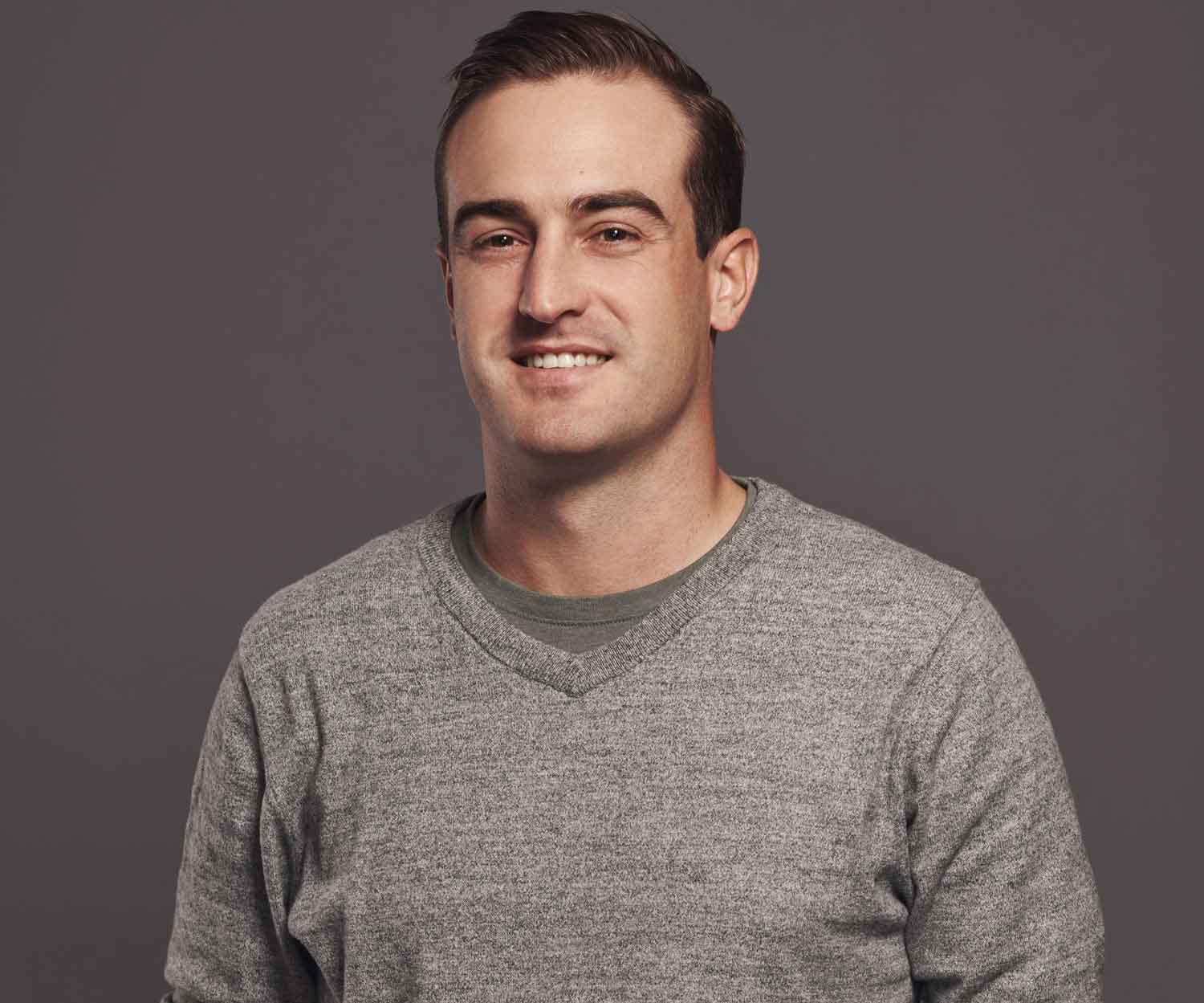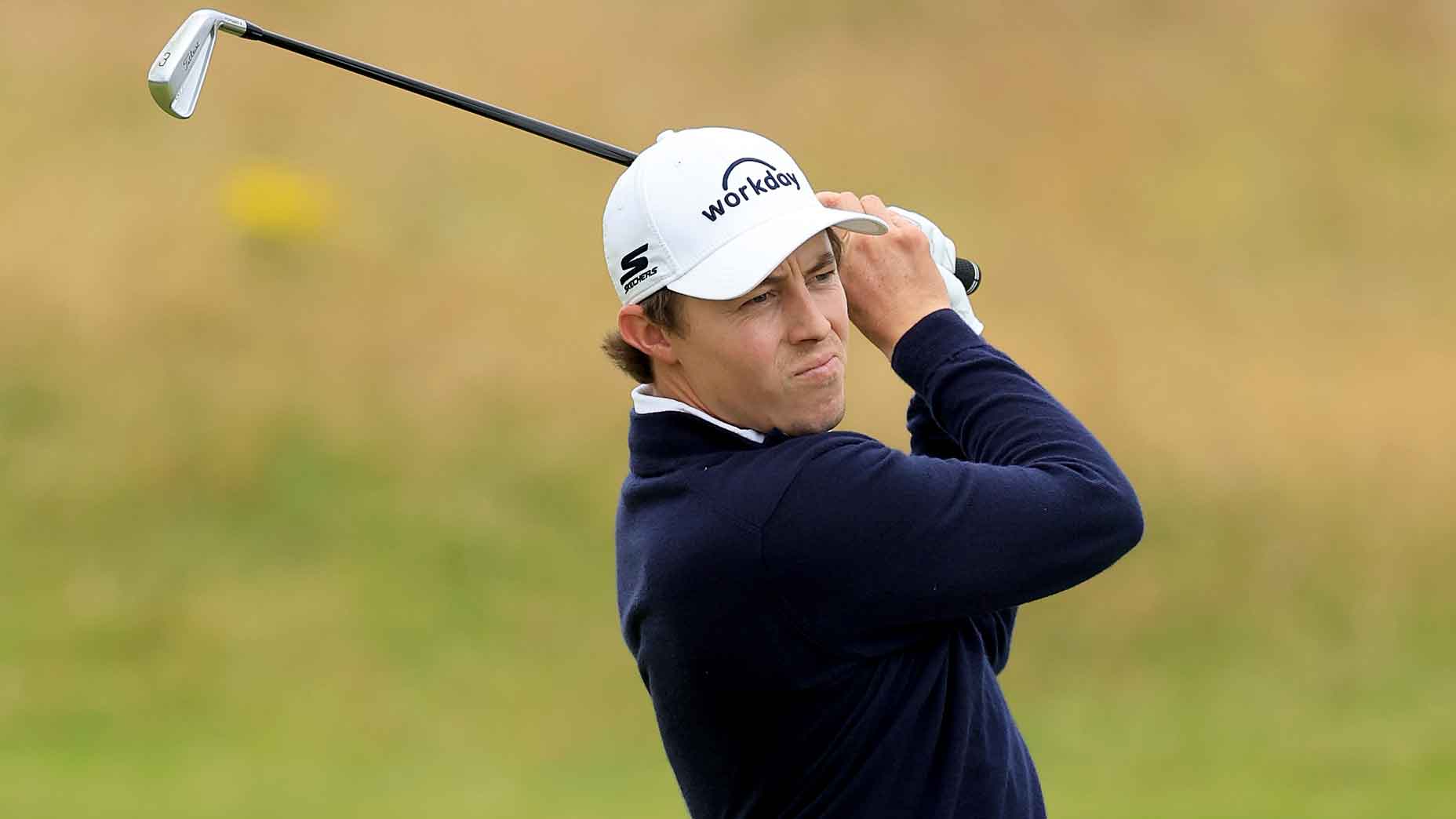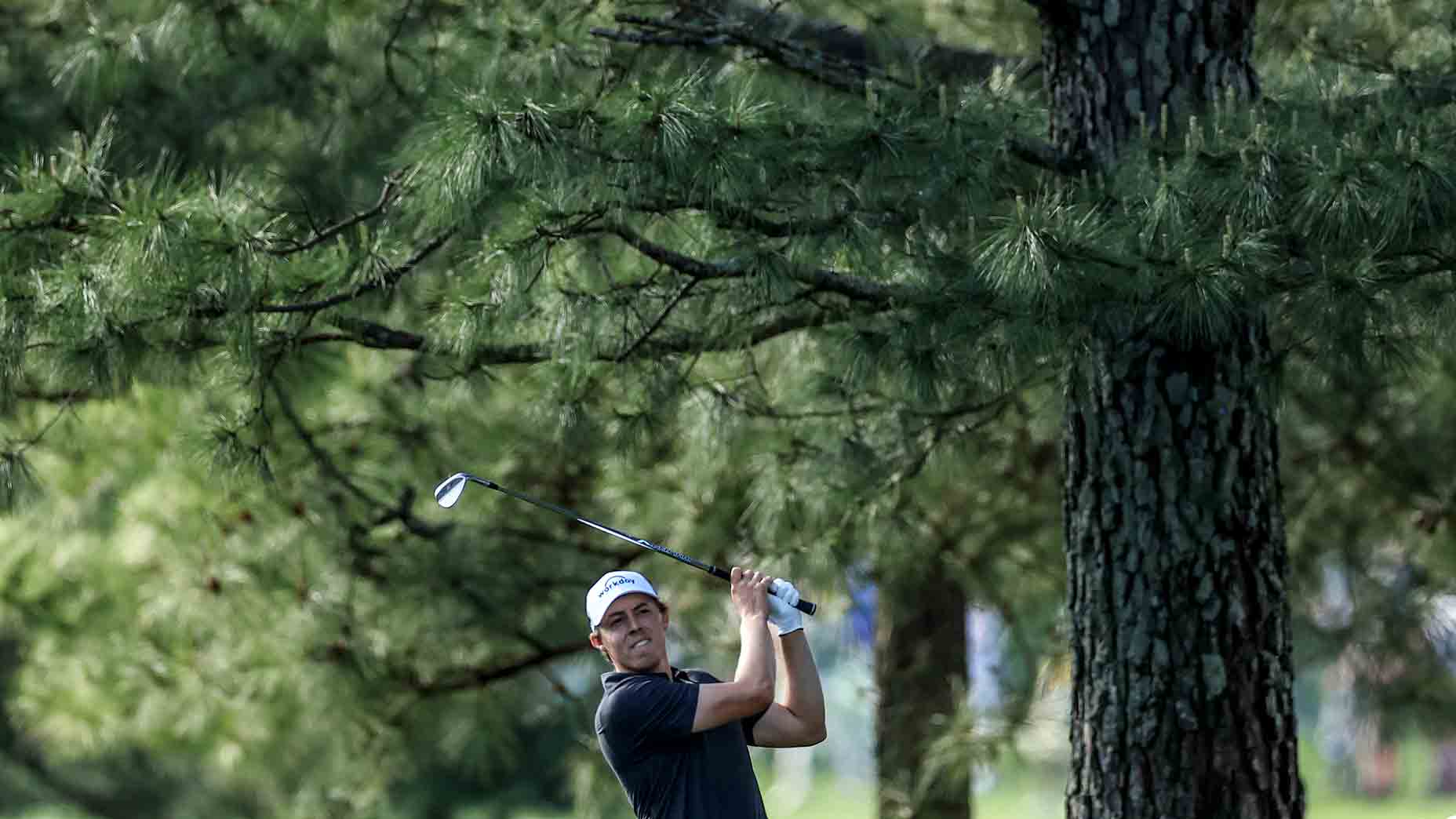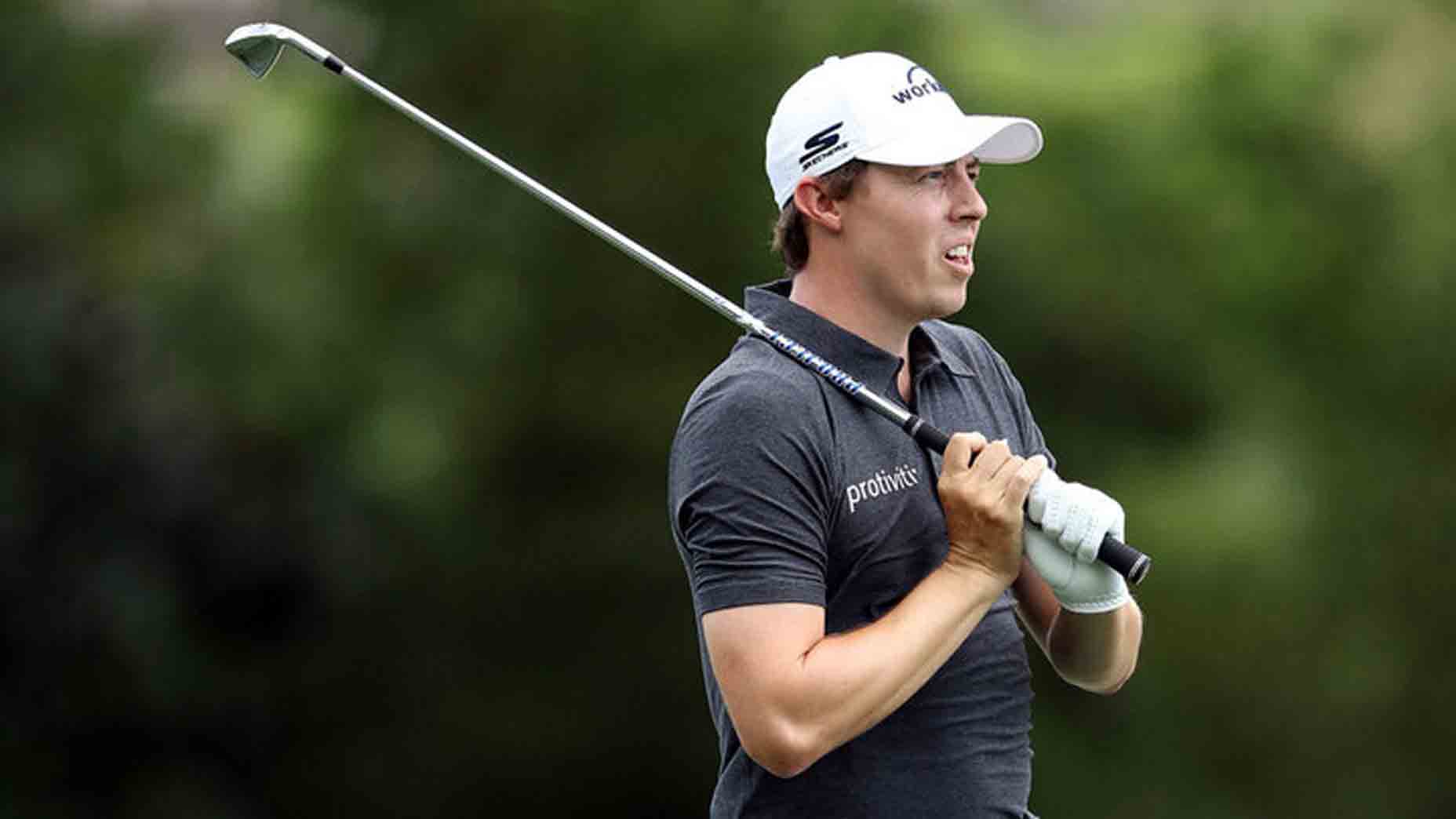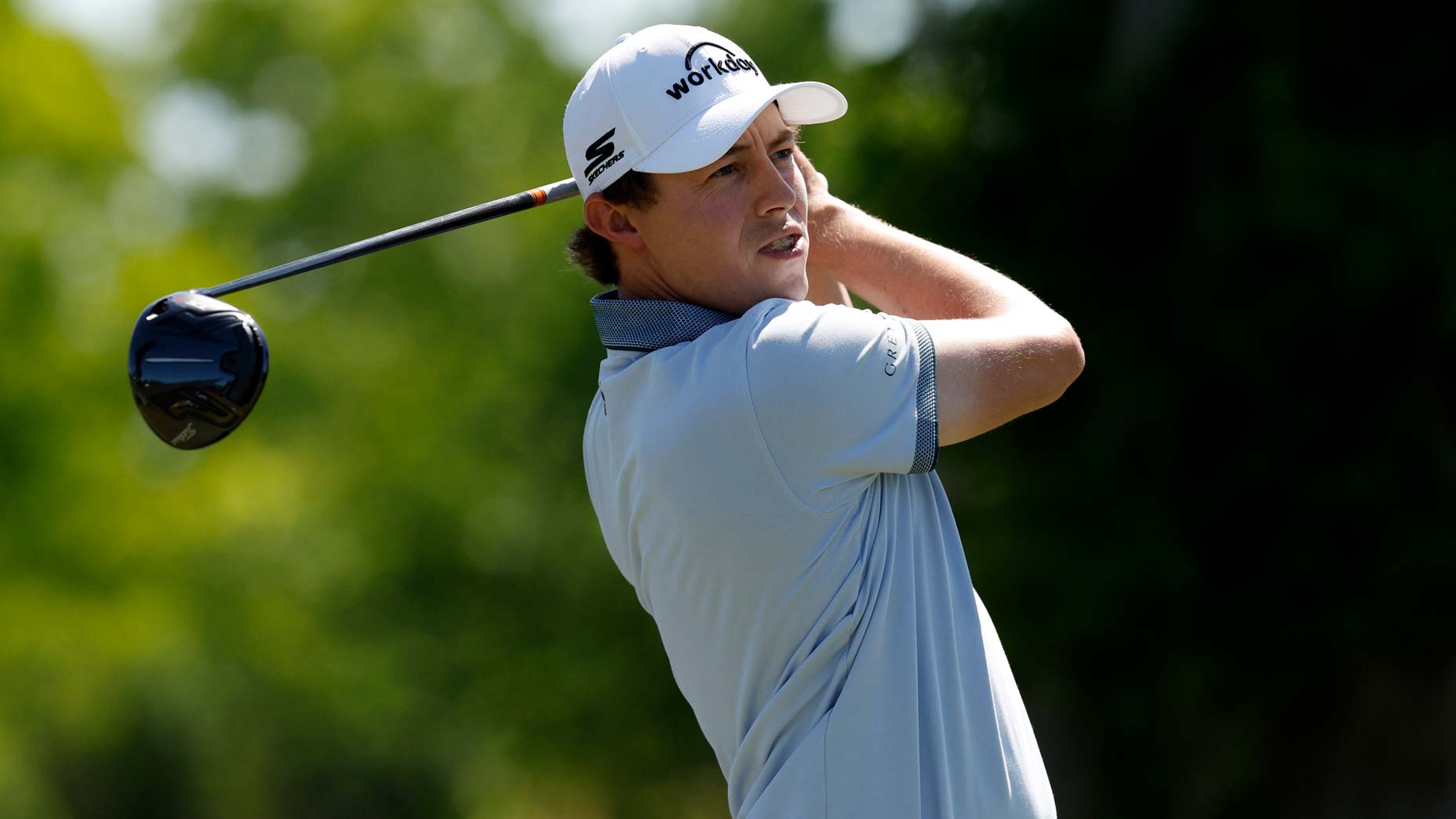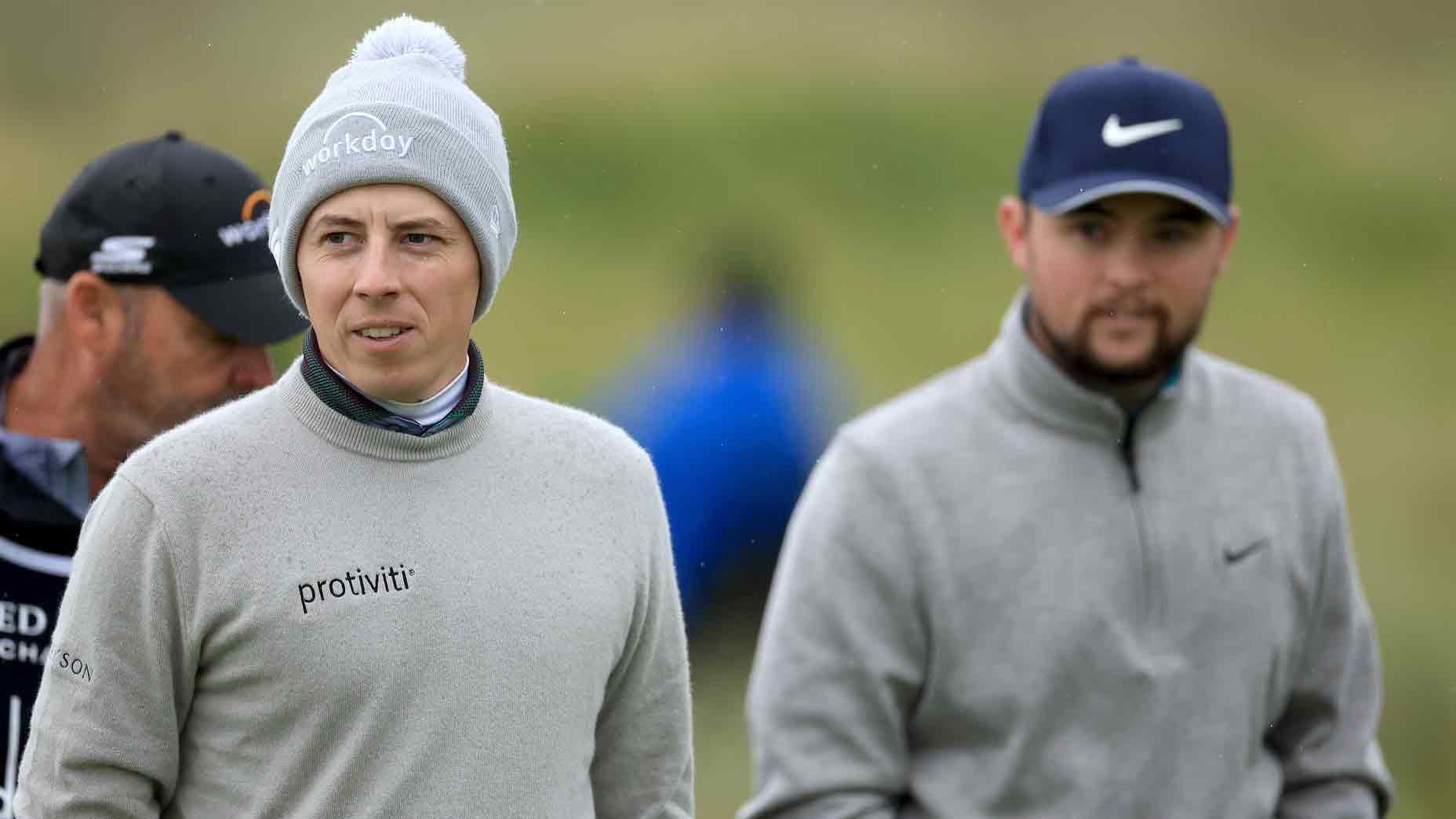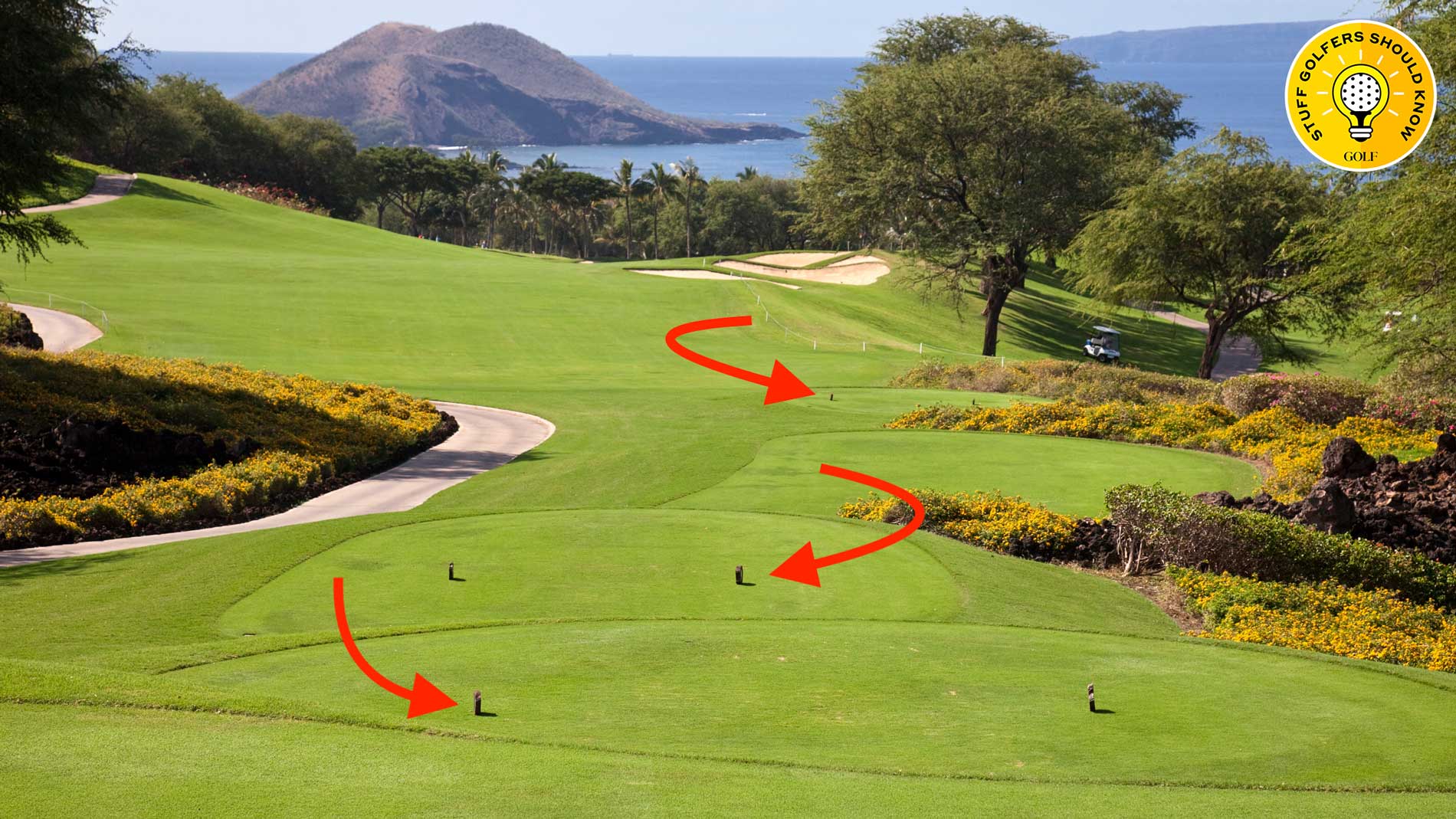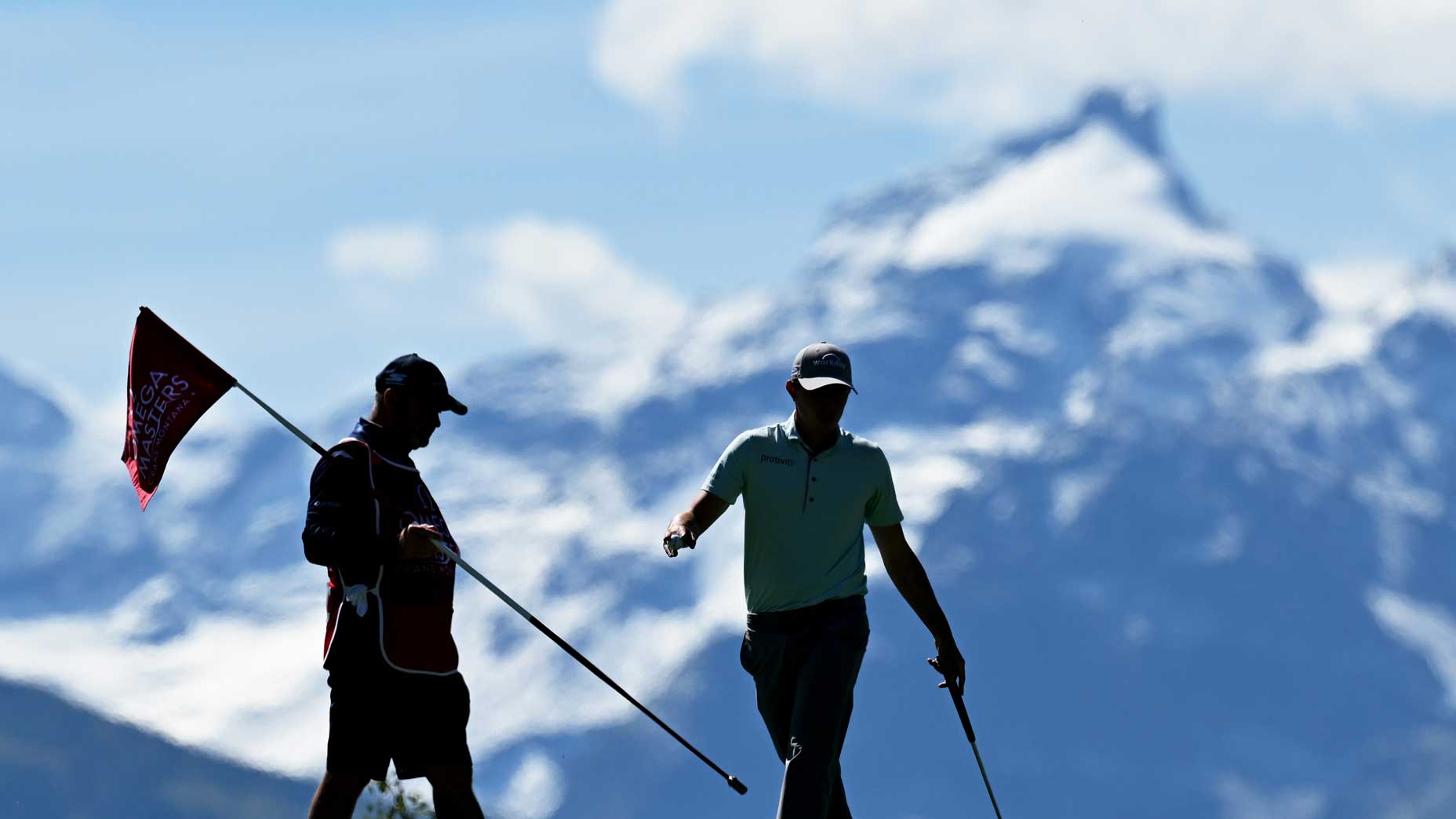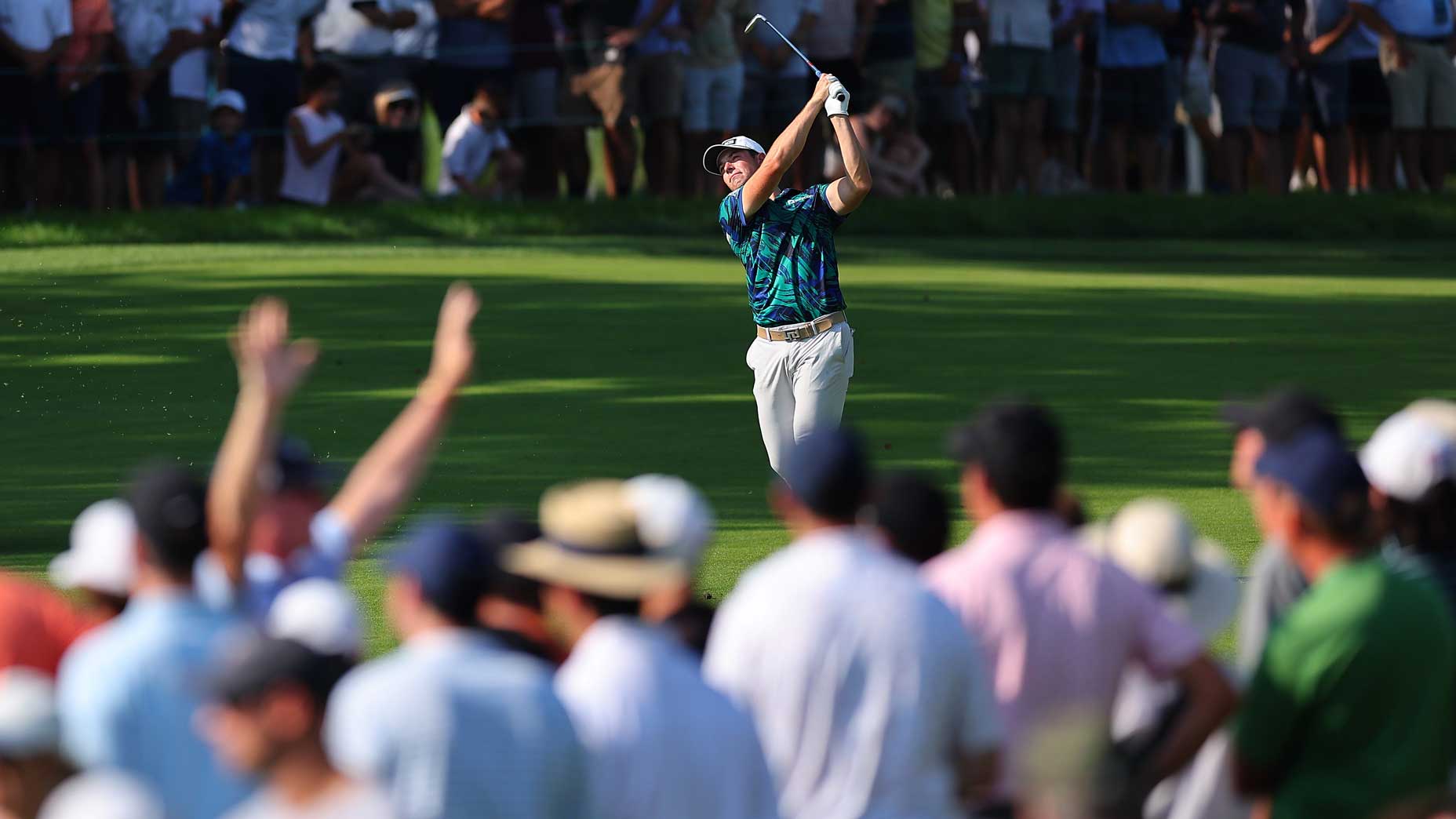‘Truly appalling’: Matt Fitzpatrick sounds off about pace of play
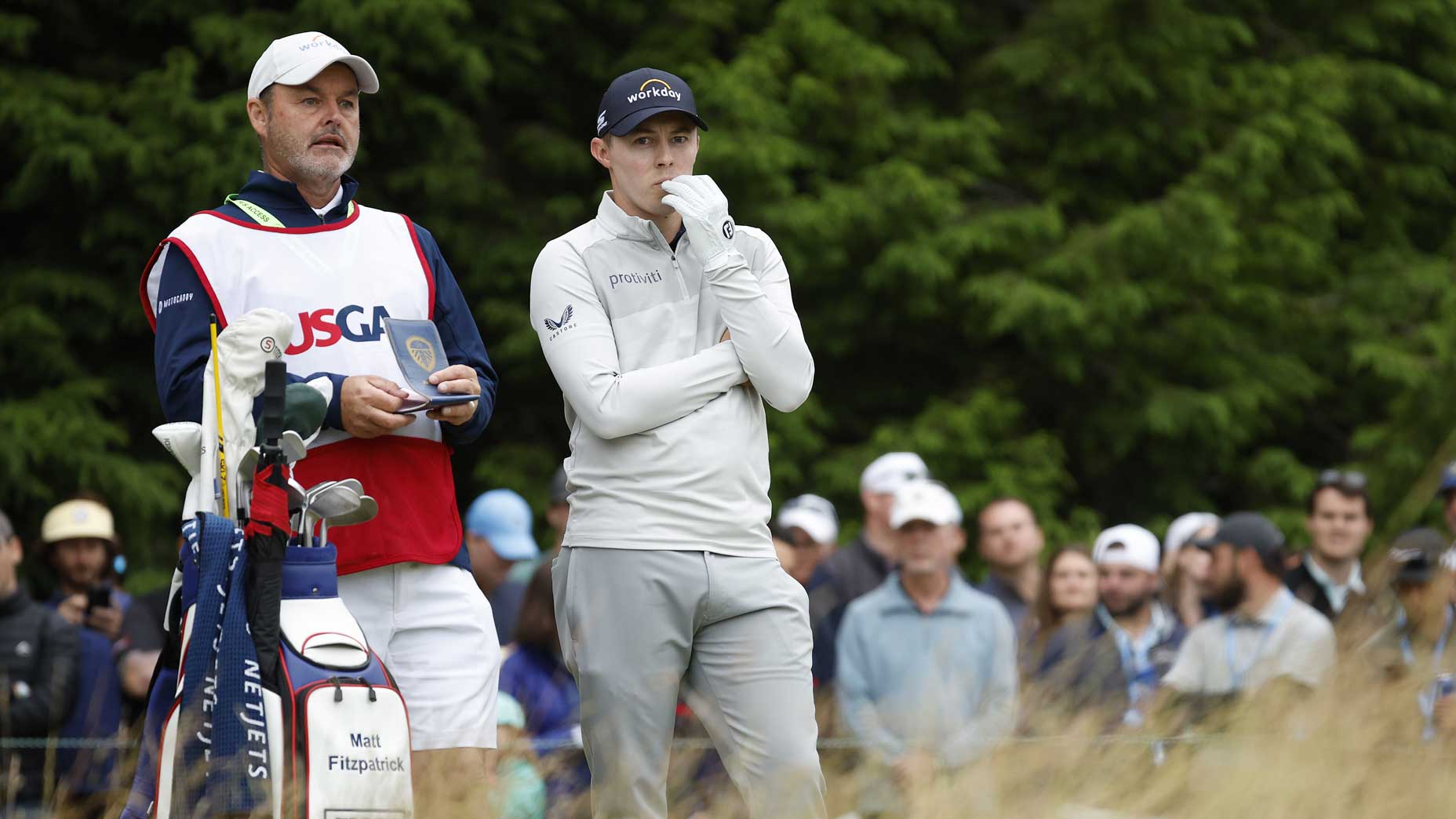
Matt Fitzpatrick waits alongside his caddie during the U.S. Open at Brookline last summer.
Getty Images
In the wake of the Masters, the pro golf world has shifted its focus not to the next tournament on the calendar but rather toward past tournaments, viral videos, fans with shot-clocks in their hands. That’s right, we’re talking about pace of play. PoP, much different than the PIP.
Pace of play is something every golfer in the world is forced to think about at some time or another. It could be as small potatoes as the pace at your local muni or as high of stakes as the final round at Augusta National. It may be hard to define and hard to enforce but one thing is true: few topics are as enraging as pace.
Most everyone thinks they’re a fast player. Or at least fast enough. Not going to slow anyone down. No one thinks they’re a slow player. Or rather, too slow. But time commitment is one of the biggest issues facing the game at large. Broadcast time slots are battered by it. There has to be slow players. And there are. Especially if you ask Matt Fitzpatrick.
Fitz is our reigning champion on the PGA Tour, having triumphed at Harbour Town last weekend. He played in the final group alongside Jordan Spieth and Patrick Cantlay, the latter of which has recently become the focus of debate on the topic. Cantlay’s group at Augusta National was criticized by Brooks Koepka following the final round for how slow the pace got at the Masters. Two days later, Cantlay was asked how that glacial experience was for him, to which he pointed out that the group ahead of them was still on the 2nd tee the moment they walked off the 1st green. It was “slow for everyone,” Cantlay said.
Fair enough. But that doesn’t mean there isn’t still a problem. Fitzpatrick would like to see it addressed.
“I think the times need to be changed,” Fitzpatrick said in an interview with Jamie Weir of Sky Sports. “I think the times need to be much less. Then that way, when you’re not within those times, you’re going to be penalized and properly punished for being slow. I think they give us way too much leeway for getting around.”
These “times” he talks of are the basic rules by which pace of play is governed on the PGA Tour. Whenever a group is “out of position” by falling behind the pace and playing certain holes in longer than the hole-specific time allotted, they are put “on the clock” by officials. When they are being timed, players must play within 40 seconds if it is their turn. The limit is extended to 50 seconds if they are the first to play approach shots on a given hole (first shot on par-3, first second shot on par-4, etc.). If they fail to do so, they earn a warning for a “bad time.” Two bad times in a given tournament earns a one-stroke penalty.
While that may sound like a plausible scenario considering how popular a topic pace is on the golfy corners of the internet, it has only happened at major championships. John Catlin earned a one-shot penalty at the 2021 PGA Championship and Tianlang Guan earned the same penalty at the 2013 Masters. That’s two infractions in 10 years for an issue that many players, Fitzpatrick foremost, find to be rampant.
“If you’re in a three-ball, in my opinion you should be round in four hours, four-and-a-half absolute maximum — it’s a disgrace to get anywhere near that,” he continued. “You’re talking [five hours, 15 minutes], five-and-a-half hours at some venues and it’s truly appalling.
“The problem is, though, this conversation has gone on for years and years and years, and no one has ever done anything. So I feel it’s almost a waste of time talking about it every time. I have my opinions — they’re probably strong opinions, but PGA Tour, DP World Tour, no one’s going to do anything about it.”
If Fitz was in charge, it sounds like the governance would begin with dropping the time allowed to play a stroke. And for players to be more ready, it seems, to make those strokes when it’s their turn. And for tournament officials to crack down on timing players. Or, simply, for players to take it upon themselves.
The PGA Tour addressed pace of play in a serious way in 2021, raising the fines for players with many bad times over the course of a season, promising they would review the 45-second rule annually. Is it too soon to make any declarations on how long is too long? The internet doesn’t think so. But the internet isn’t in charge.

